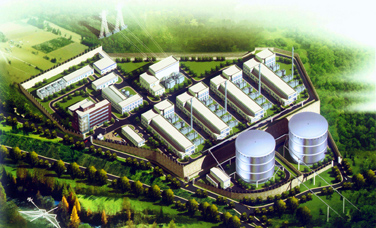|
|
|
||||||||
|
Advocating for U.S. Commercial Interests at the Multilateral Development Banks The Commerce Department’s liaison officers at the five multilateral development banks help U.S. companies compete for procurements at those institutions. by Malcolm Burke Each year, the largest multilateral development banks (MDBs)—the World Bank, the Asian Development Bank, the African Development Bank, the Inter-American Development Bank, and the European Bank for Reconstruction and Development—provide about $50 billion in public- and private-sector development financing to emerging markets. Those development projects result in thousands of procurement contracts for everything from consulting services to the supply of manufactured goods. Although the potential for U.S. exporters, lenders, and other businesses is enormous, many U.S. firms miss out on those lucrative opportunities because they lack the necessary information about the projects and are unfamiliar with the tendering procedures of the MDBs.
In recognition of the vast potential of the development projects and risk mitigation products funded by those banks, Congress mandated in the Omnibus Trade and Competitiveness Act of 1988 the placement of Commerce Department representatives at each of the five MDBs. The liaison officers work out of the Advocacy Center and are ready to assist U.S. companies in their pursuit of lucrative business opportunities at the banks. Those individuals, typically senior commercial officers of the U.S. and Foreign Commercial Service, have unique access to information and to decision-makers at the respective banks, and they are effective advocates for U.S. commercial interests at the institutions. The MDB liaisons conduct outreach to U.S. businesses by providing information on the status of particular projects, by giving insight into future bank priorities and initiatives, by providing appropriate assistance with respect to commercial disputes, and by generally seeking to ensure equal treatment for U.S. companies. The liaisons also promote the risk mitigation strategies for emerging market activities developed by the banks and counsel companies on how to effectively compete for procurement opportunities. Ensuring Equal Access at the World Bank The liaisons can also help U.S. businesses in other ways. One example is the World Bank network of Private Sector Liaison Offices (PSLOs). The U.S. liaison officer working at the World Bank noted that, although there are 93 PSLOs in 72 countries, including eight in Canada, there are none in the United States. By working with the World Bank’s Office of External Affairs, the liaison officer was able to facilitate the issuance in June 2007of a request for proposals (RFP) for the creation of a PSLO in Chicago. RFPs for additional offices in the United States will be released in the near future. The establishment of PSLOs in the United States will give U.S. businesses access to the same level of service from the World Bank that those of other donor nations have long enjoyed. Booklets Offer Guidance U.S. businesses are advised to begin exploring the opportunities at these institutions by visiting the Web sites of each MDB, by acquainting themselves with the procedures and goals of the various institutions, and by carefully reviewing a series of booklets recently published by the Advocacy Center on how to do business with the MDBs. The booklets contain contact information for the liaison offices and more information concerning the MDBs. Malcolm Burke is the associate director of the Department of Commerce’s Advocacy Center.
|
|
